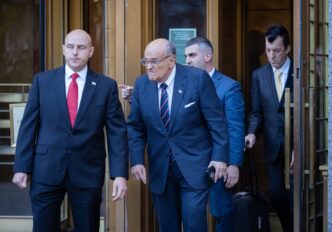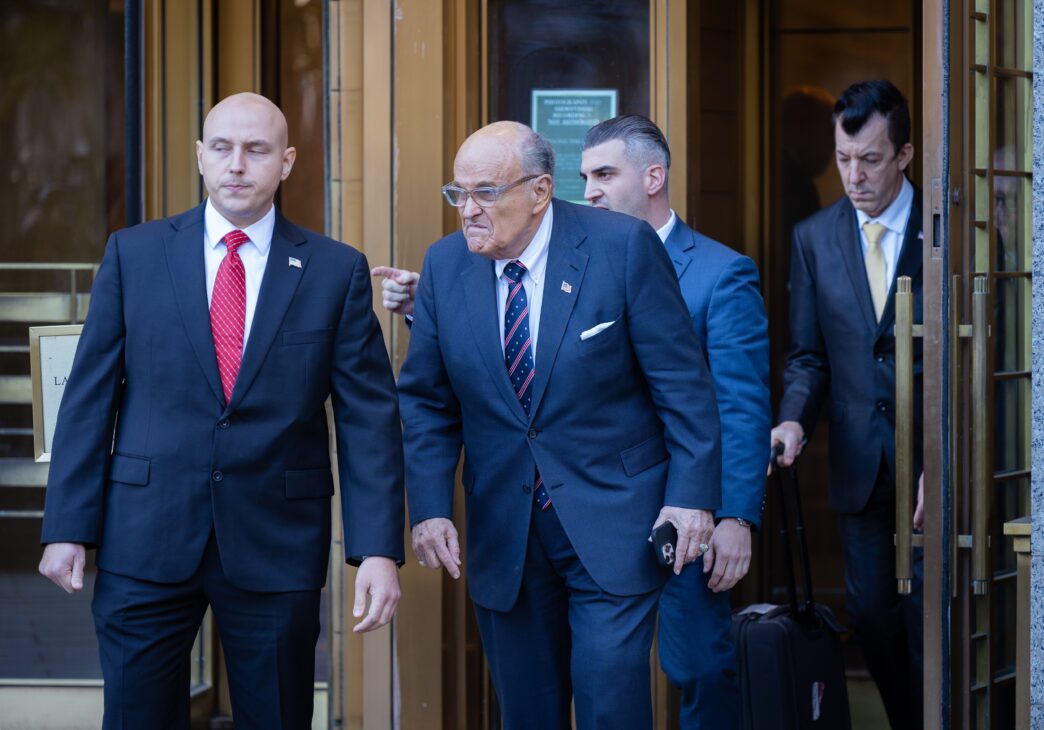Executive Summary
- President Trump issued pardons for 77 individuals involved in efforts to overturn the 2020 election results, including Rudy Giuliani, Sidney Powell, and Mark Meadows.
- An analysis characterizes Trump’s pardons as “transactional,” creating a “permission structure” where individuals may expect to avoid federal accountability for actions benefiting him directly.
- Over 84% of Trump’s pardons and commutations are linked to matters concerning him personally, reinforcing concerns about incentives for legally dubious actions on his behalf.
The Story So Far
- President Trump’s recent pardons for individuals involved in efforts to overturn the 2020 election results are consistent with a long-standing pattern where his clemency actions are characterized as transactional and self-serving, rather than purely political. This trend, which began during his first term with pardons related to the Russia investigations, has cultivated a “permission structure” where individuals might believe they can avoid federal accountability for actions undertaken on his behalf, with the expectation of future clemency.
Why This Matters
- President Trump’s latest pardons for individuals involved in efforts to overturn the 2020 election reinforce a consistent pattern of “transactional” clemency, creating a “permission structure” that may incentivize individuals to undertake legally dubious actions on his behalf with the expectation of avoiding federal accountability, thereby raising significant questions about future conduct and the integrity of legal processes.
Who Thinks What?
- Aaron Blake’s analysis characterizes President Trump’s pardons as transactional and self-serving, suggesting they create a “permission structure” where individuals might expect to avoid federal accountability for actions benefiting him directly.
- Individuals who received or sought pardons, such as Rudy Giuliani, John Eastman, and Michael Cohen, demonstrated an expectation or hope that President Trump would grant clemency for actions taken on his behalf, acknowledging potential legal exposure.
President Donald Trump recently issued a new round of pardons for 77 individuals involved in efforts to overturn the 2020 election results, including former lawyers Rudy Giuliani and Sidney Powell, and former chief of staff Mark Meadows. This latest action, announced overnight by Justice Department official Ed Martin, reinforces a trend where Trump’s pardons are characterized as transactional rather than solely political, according to an analysis by Aaron Blake published on November 10, 2025.
The pardons extend to many individuals implicated in the “fake electors scheme.” While these individuals have not faced federal charges, and some may still face state-level charges for which a presidential pardon does not apply, the gesture is seen as a significant symbolic act.
Transactional Pardons
The analysis argues that Trump is creating a “permission structure” where individuals might believe they can avoid federal accountability if their actions benefit him directly. This pattern, it suggests, has been cultivated over time, becoming more overt with each new clemency action.
Combining the latest pardons with those granted to January 6, 2021, defendants and other allies who testified in cases involving the president, Trump has now pardoned over 1,650 individuals linked to matters concerning him personally. These account for more than 84% of all pardons and commutations issued by Trump, who has otherwise been described as sparing in his use of clemency powers for unrelated cases.
Historical Context
Previous official reports from various Russia investigations indicated that Trump appeared to dangle pardons to individuals who possessed potentially damaging information about him. This included former advisers Roger Stone, Paul Manafort, and Michael Flynn, all of whom were later pardoned by Trump during his first term.
Special counsel Robert Mueller’s report highlighted that Trump’s repeated comments about potentially pardoning Manafort “had the potential to influence Manafort’s decision whether to cooperate with the government.” Manafort’s pardon followed his lies to investigators, which a bipartisan Senate report deemed particularly inexplicable given the increased prison time it risked.
Former personal lawyer Michael Cohen also stated that he was led to believe the Trump White House would assist him with a pardon if he remained loyal. Similarly, Giuliani publicly floated the idea of pardons for witnesses in the Russia investigation, asserting Trump’s retained pardon power.
Following the January 6 insurrection, lawyer John Eastman emailed Giuliani, requesting inclusion on a “pardon list,” suggesting that those around Trump recognized the potential legal issues of their actions. Nearly five years later, Eastman, like Giuliani, has now received a pardon.
Implications
The analysis concludes that the sheer volume and nature of these self-serving pardons send a clear message. It raises questions about the incentives for individuals to undertake legally dubious actions on behalf of President Trump, whether in administration policies, deportation efforts, or attempts to influence election outcomes, with the expectation of future clemency.








